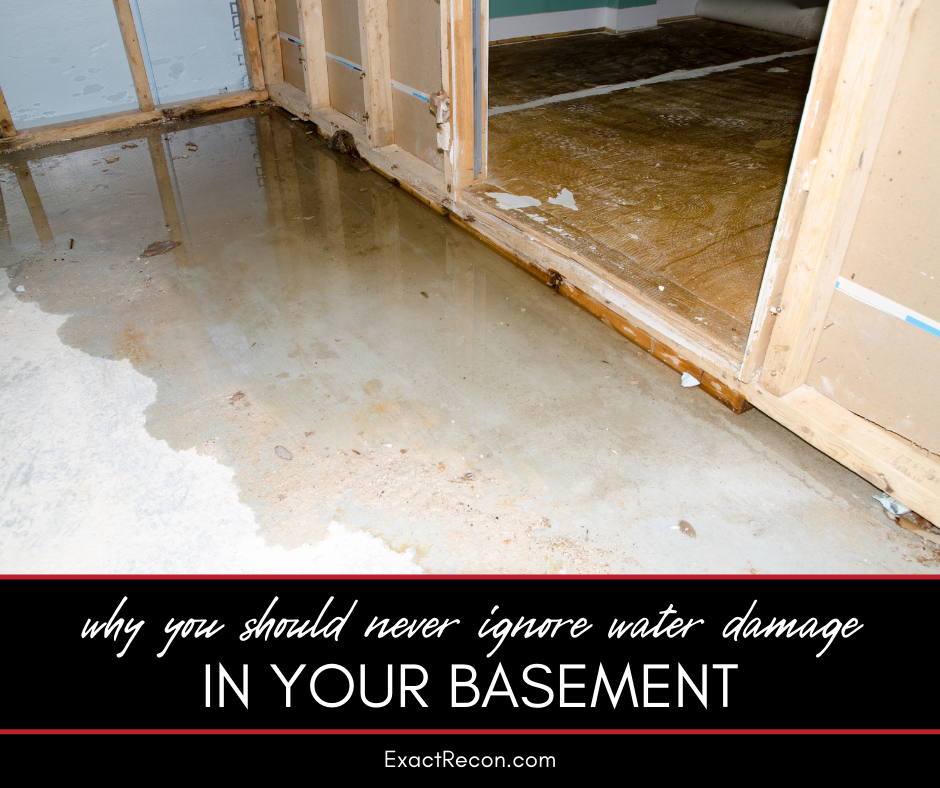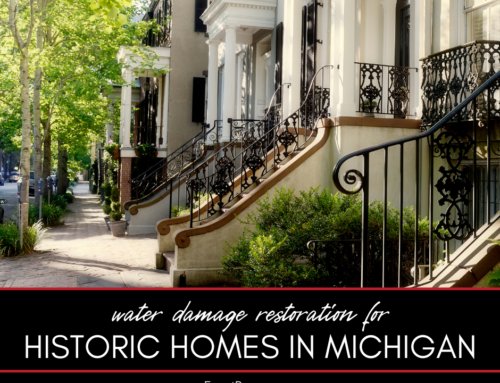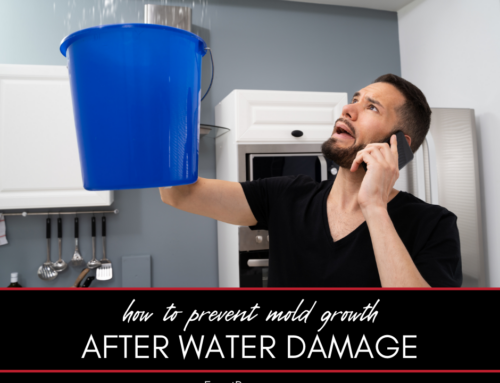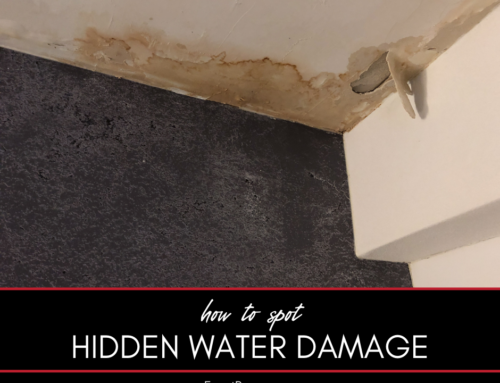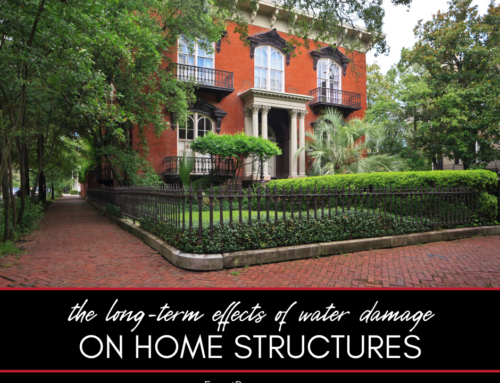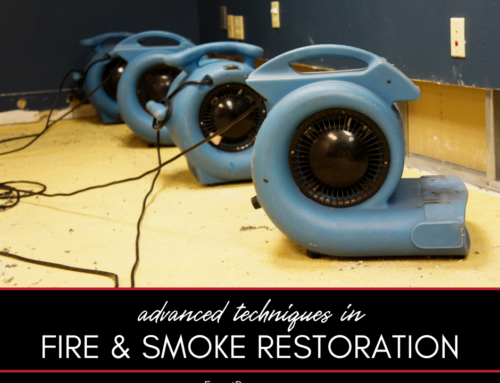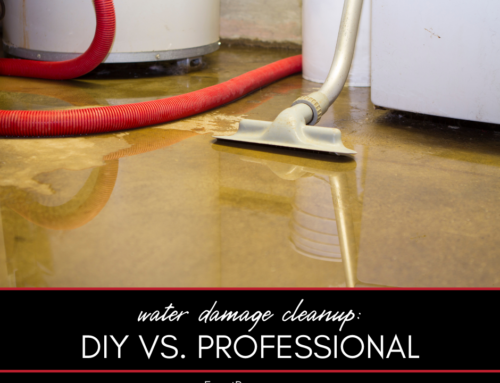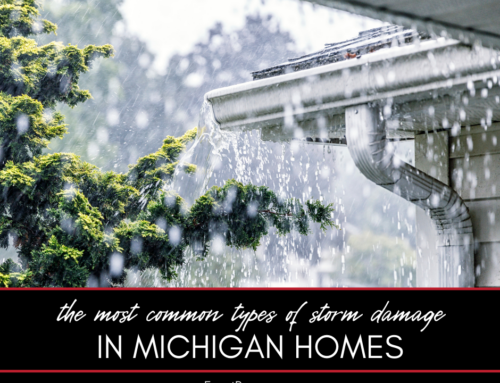Water damage in your basement can lead to serious issues if left unaddressed. Understanding the risks and taking immediate action is crucial for maintaining a safe and healthy home.
Why You Shouldn’t Ignore Water Damage in Your Basement
Ignoring water damage in your basement can cause various problems, from structural damage to health hazards. This guide explains the following:
- Structural damage risks
- Mold growth and health concerns
- Electrical hazards
- Pest infestations
- Decreased property value
- Preventative measures
- The importance of professional water damage restoration
Here’s a closer look at each.
Structural Damage Risks
Water damage in your basement can compromise the structural integrity of your home. Persistent moisture can weaken the foundation, leading to cracks and instability. Over time, this can result in significant damage to the walls, floors, and support beams of your home. If you notice any signs of structural damage, such as cracks in the foundation or walls, it’s crucial to address the issue immediately. Ignoring these signs can lead to costly repairs and potentially dangerous living conditions.
Related: Tips on protecting your home from disasters and other damage
Mold Growth and Health Concerns
One of the most significant risks associated with water damage is mold growth. Basements provide an ideal environment for mold due to their dark, damp conditions. Mold can spread quickly, affecting your home’s air quality and posing serious health risks. Exposure to mold can cause respiratory issues, allergies, and other health problems, especially for individuals with asthma or weakened immune systems. If you suspect mold growth in your basement, it’s essential to call a professional for mold remediation.
Electrical Hazards
Water and electricity are a dangerous combination. If water damage in your basement reaches electrical outlets, wiring, or appliances, it can create a significant fire hazard. Water exposure can cause short circuits, electrical shocks, and even fires. It’s crucial to turn off the electricity to the affected area and contact a professional electrician to inspect and repair any damage. Ignoring electrical hazards can put your home and family at risk.
Related: How to make an insurance claim after a disaster
Pest Infestations
Damp basements can attract pests such as insects, rodents, and termites. These pests are drawn to moisture and can cause further damage to your home. Rodents can chew through wires, insulation, and wood, while termites can compromise the structural integrity of your home. Addressing water damage promptly can help prevent pest infestations and the additional problems they bring.
Decreased Property Value
Water damage can significantly decrease the value of your property. Potential buyers are likely to be deterred by signs of water damage, mold, and structural issues. Even if you plan to stay in your home, addressing water damage promptly can save you money in the long run by preventing costly repairs and maintaining your property’s value. Ensuring your home is in good condition is essential for preserving its worth and appeal.
Preventative Measures
Taking preventative measures can help minimize the risk of water damage in your basement. Ensure that your gutters and downspouts are clean and functioning correctly to direct water away from your home. Install a sump pump to manage water accumulation in your basement. Seal any cracks in the foundation and walls to prevent water intrusion. Consider using a dehumidifier to control humidity levels and reduce the risk of mold growth. Regular inspections and maintenance can help identify and address potential issues before they become significant problems.
Related: All about wind damage
The Importance of Professional Water Damage Restoration
While some minor water damage can be addressed on your own, it’s often best to call a professional for water damage restoration. Professionals have the expertise and equipment to thoroughly assess and address water damage. They can identify hidden moisture, ensure proper drying, and prevent mold growth. Hiring a professional ensures that the restoration is done correctly and safely, protecting your home and health.
FAQ About Water Damage in Basements
Check out these commonly asked questions about water damage in basements. If you don’t see your question here, please call our office and we’ll find you the answers you need.
How Can I Prevent Water Damage in My Basement?
To prevent water damage in your basement, ensure that gutters and downspouts are clean and direct water away from your home. Install a sump pump, seal any cracks in the foundation, and use a dehumidifier to control humidity levels.
What Should I Do If I Find Mold in My Basement?
If you find mold in your basement, clean small areas with a mixture of water and bleach or a commercial mold cleaner. For larger infestations, it’s best to call a professional for mold remediation to ensure thorough and safe removal.
Can Water Damage Affect My Home’s Foundation?
Yes, water damage can weaken your home’s foundation, leading to cracks and instability. Addressing water damage promptly is crucial to prevent structural issues and maintain your home’s integrity.
Related: Black, gray and clean water: What you need to know
How Do I Know If My Basement Has Water Damage?
Signs of water damage in your basement include damp walls or floors, a musty odor, visible mold growth, water stains, and peeling paint. Regularly inspect your basement for these signs and address any issues promptly.
Is Professional Water Damage Restoration Expensive?
The cost of professional water damage restoration varies depending on the extent of the damage. However, addressing water damage promptly can save you money in the long run by preventing further issues and costly repairs.
Do You Need a Disaster Remediation Expert in Washtenaw County or Jackson County?
If your home has already been damaged, we can help. Check out our services and call Exact Recon for your free disaster remediation quote today. We offer:

